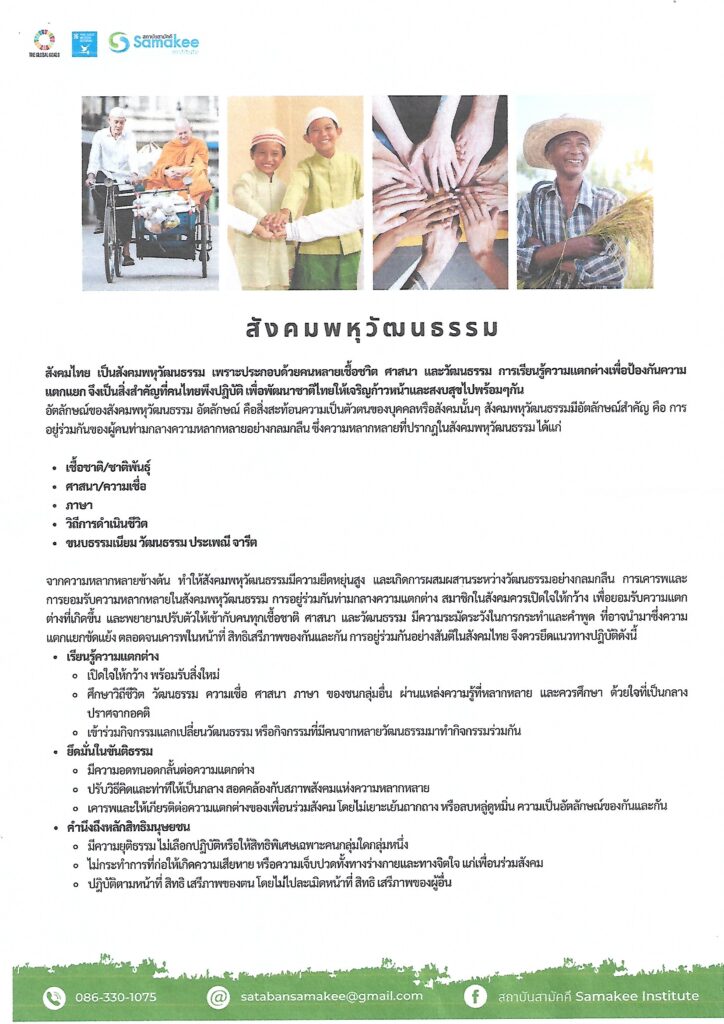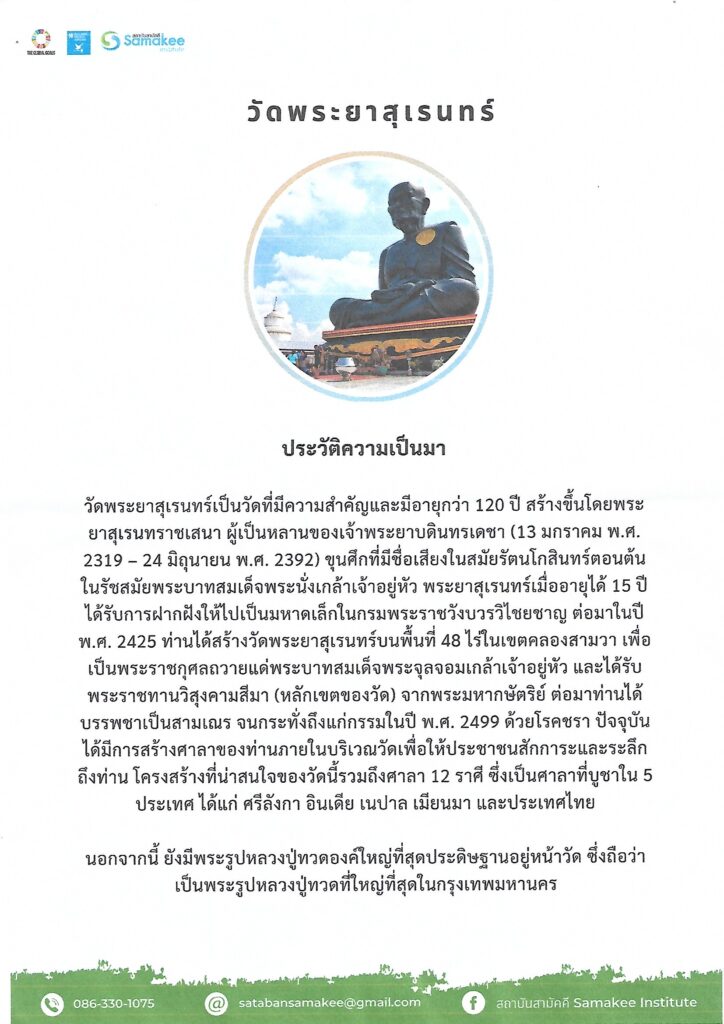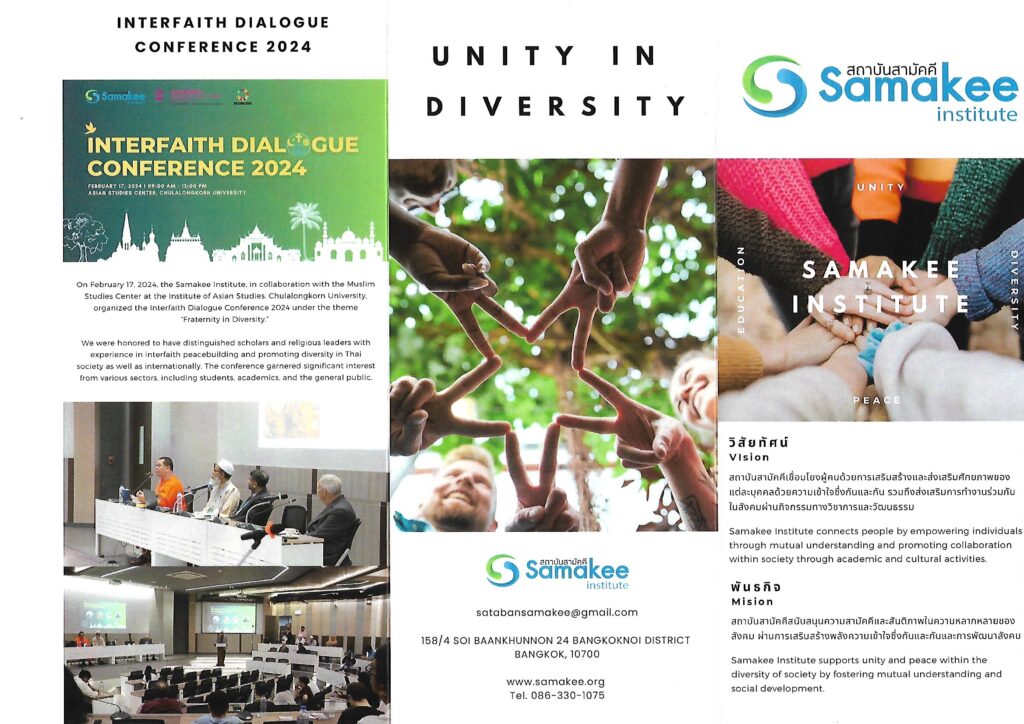18 Sep 2024
An interfaith study tour template for Thailand as an Alliance of Civilisations destination
Bangkok – If the Thai Travel & Tourism industry recognises the rising global tide of hate speech, ethnocentricism and extremism as a potential risk and threat to its sustainable and commercial future, it will have to initiate a preventive-action partnership with moderate religious leaders such as those I met on 14 Sept 2024 on the 2nd Bangkok Inter-Faith and Cultural Diversity Trip organised by the Samakee (Unity) Institute under its President Mr Pisut Namcharoenchai.
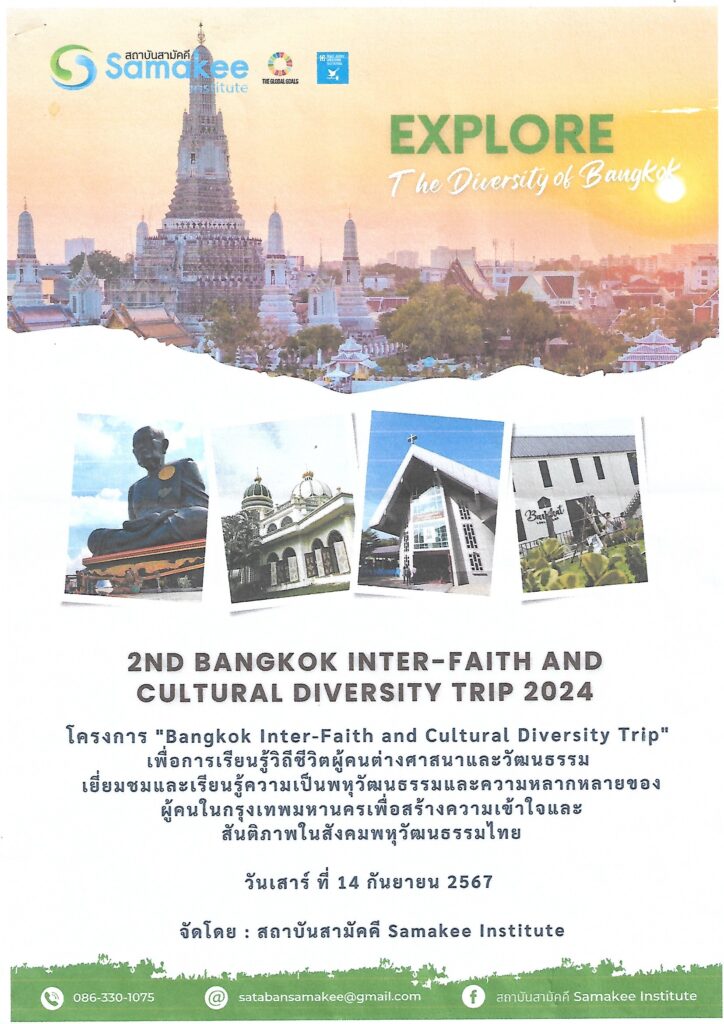
Fifteen Thai Gen-Z students aged 16-20 participated in the trip which was designed to help them learn about the way of life of people of different religions and cultures, and understand the role of diversity in building peace and understanding within Thai society. The students included eight Buddhists and seven Muslims, plus two university professors and my two grandtwins, aged 10.
We visited the Phraya Suren Temple, the Kamalul Islam mosque and the St Theresa Church, all historic places of worship located in the suburbs about an hour’s drive from downtown Bangkok. In all three spots, we heard enlightening, inspiring stories about the history of each place of worship, their contribution to human development and, perhaps most important, the ability of their congregations to co-exist in peace and harmony.
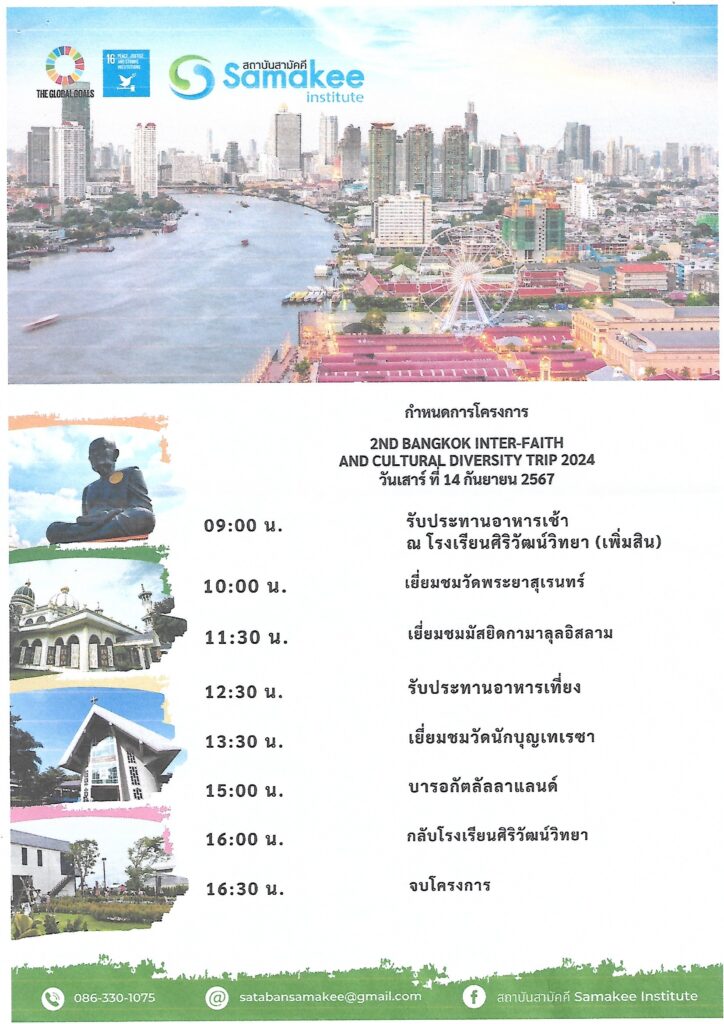
This is the real sustainability, in line with UNSDG #16 (Building Justice, Peace and Strong Institutions). In a world of growing ethno-cultural conflict, what I call “The Other Global Warming”, taking pre-emptive and preventive action to limit this cancer is becoming the overarching need of the hour.
In spite of being a Buddhist-majority kingdom, Thailand stands out as an inclusive society, open to all. As such, it is well placed to be the world’s first Alliance of Civilisations destination. Such tours are a template for designing a new generation of Must-See, Must-Do itineraries.




At the Phraya Suren temple, Abbot Sithi Singhaseni focused on commonalities of the religions, comparing them to the fingers on a hand — all different in size but all perfectly balanced and performing common functions. The 52-year-old monk comes from a background of interfaith families and was well-versed with Islamic tenets. He also invited the study trip participants to sit on chairs rather than on the floor, as is required when listening to a monk. He ended his talk by offering a prayer invoking the names of the Lord Buddha, Allah SWT and Jesus Christ (Peace Be Upon Him).

At the Kamalul Islam mosque, Imam Samai Charoenchang, a retired politician and currently President of the Bangkok Islamic Committee, highlighted the Malaysian origins of the 8,000-strong community around the mosque. He said his focus is on human development, which is a common denominator regardless of individual faith or belief. Calling this the real infrastructure of society, he stressed that love, compassion, charity, moderation and the focus on the inner self were common to all religions. The Imam dwelt on the role of Islam and Muslims in Thai history and how the accommodating Thai society has been able to keep colonial empires at bay. He also cited the lessons of the Vietnam war for leadership and unity.

At St Theresa’s Church, Father Wanchai Phiewkhiang focussed on the history of Christianity in Thailand, dating back to the arrival of French and Portuguese traders. He explained the principles of Christianity, noting that splits such as between Protestants and Catholics were merely differences in schools of thought, but all united around faith in God and Jesus Christ (PBUH). This, he said, was the same as the differences between the Mahayana and Hinayana schools of thought, although both believed in the Lord Buddha. Father Wanchai also rued the breakdown in societal norms, citing the young generation moving away from faith as being a common problem facing all religions.

The entire trip was designed around the concept of Unity in Diversity and the need to focus of the commonality of Humanity. Students had a chance to see how creativity manifested itself not just in the arts but also in ways of life.
Here are some of my key takeaways:
In addition to the three spots we visited, all of which were in the suburbs, inner Bangkok boasts a rich collection of Sikh, Hindu and Chinese temples and shrines, along with dozens of churches, mosques and, of course, the iconic Buddhist spots. The Erawan shrine, smack in the midst of the downtown shopping malls, is one of the country’s most popular attractions.
By and large, politicians and the mainstream media do not incite ethnic conflicts for narrow political gain. Certainly, individuals harbour their own private prejudices and biases, and give vent to them on social media, but it does not disturb the public peace nor does it disrupt daily livelihoods.
The Travel & Tourism industry takes that scenario for granted. The link between peace and harmony and Thai tourism does not figure on industry agendas which these days are obsessed with AI, ChatGPT or the usual comfort-zone Climate Change topics — curbing energy usage, cutting back on plastics and food waste, etc.
However, societal peace is by far the most important bedrock for Tourism, as evidenced by the impact of the ongoing conflict in neighbouring Myanmar, a country which is equally as blessed as Thailand in terms of natural and cultural heritage, but gets nowhere near the same number of visitor arrivals, for obvious reasons. The history of the Sri Lankan civil war is another example of how no country is immune.
Worldwide, extremist agendas are on the rise. If religious hotheads take over in Thailand, too, Travel & Tourism will be a primary casualty. To underpin their commercial interests, industry leaders will need to recognise the risk and start working on preventive and pre-emptive measures to avert the risk from becoming a crisis.
This will require an all-of-industry approach including business, government, academia, media, civil society and religious leaders. A genuine Alliance of Civilisations will need to be established and a Plan of Action set in place and pursued with the same dogged determination as the drive to address Global Warming.
The attached images explain more about the Inter-Faith and Cultural Diversity Trip. For further details, pls contact Khun Pisut Namcharoenchai, President, Samakee Institute. email: satabansamakee@gmail.com
